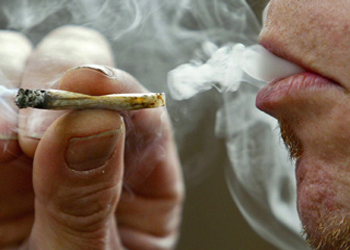 By Jocelyn Shieh, Lynbrook High School, Grade 11
By Jocelyn Shieh, Lynbrook High School, Grade 11
April 11, 2011___
With an average unweighted GPA of 3.8 and average SAT score of 2400, Lynbrook High School students seem perfect on paper. The strive to learn and succeed is a prominent trend in Lynbrook’s statistics: the average Lynbrook junior takes two Advanced Placement (AP) classes and the average senior takes three AP classes while juggling college applications, jobs, and extracurricular activities. Yet another trend among these overachieving students is also on the rise: the students’ tendencies towards drugs, drinking, and partying.
The trends’ parallelism is not a coincidence: due to pressure from fellow classmates and overbearing parents, Lynbrook students often feel compelled to take more classes they can handle, and turn to ways to relieve the stress they experience as a result. The average college freshman takes four AP classes in a semester; Lynbrook students tend to balance the same amount with other time-consuming activities, resulting in stressful junior and senior years, and an increase in escapism through certain drugs and alcohol.
Marijuana, also known more commonly among students as ‘pot,’ ‘weed,’ or ‘mary jane,’ is the most widely used substance among Lynbrook students. The usage of marijuana results in a calming state of mind colloquially referred to as a ‘high,’ in which “your subconscious takes over,” according to a senior, who asked to remain anonymous. For high school students, this offers a welcome break from hectic schedules and promotes a heightened feeling of relaxation.
“In my freshman and sophomore years, I was fine with my classes and extracurriculars,” said a senior, who asked to remain anonymous. “But in my junior year, I decided I could do better and took three AP classes without thinking. I couldn’t handle the workload. Every day was a living hell for me. I barely got enough sleep at night. I became a nervous wreck on the inside. Then someone introduced me to pot. It helped me get through junior year by calming me down from my crazy life.”
Alcohol, especially beer, gives students the opposite effect, yet is highly regarded as well. “People who are depressed about their classes drink to feel good about themselves,” said a junior, who asked to remain anonymous. “It gets you buzzed and more confident, which is why people like it.”
Though there have been no large problems with high school students’ drug and alcohol usage, which is still very low, the upward trend has led to worries from students who are aware of the growing problem.
“One of my friends grew distant this year and I thought it was just because of all the stuff he was doing,” said a junior, who asked to remain anonymous. “Then I found out he was doing pot. I was so [angry] that people would introduce him to it, and worried that he would become addicted or get caught.”
Several accounts of increased drug usage have been linked to Lynbrook in the past few months. In December, Dartmouth freshman Delos Chang, who graduated from Lynbrook in 2010, was arrested after being caught shipping narcotics to his dormitory and possessing numerous other drugs in his room. Chang, former secretary of the Dartmouth 2014 Class Council, writer for the Dartmouth Mirror, and a straight-A student, is described as “the typical Lynbrook druggie—a genius who hides his [expletive] under his perfect grades.”

